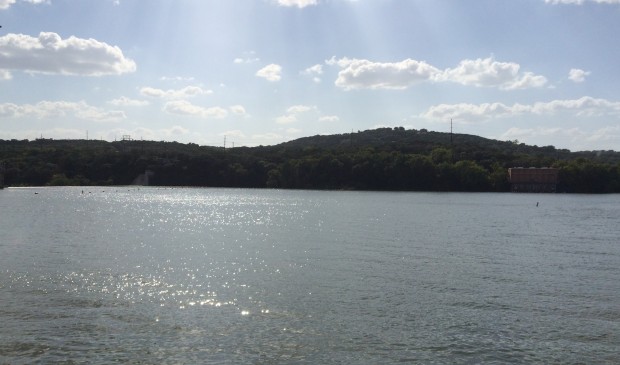LCRA delays vote on water management plan
Thursday, August 21, 2014 by
Tyler Whitson Despite pleas from stakeholders to take swift action to protect lakes Buchanan and Travis from drought conditions, the Lower Colorado River Authority board of directors voted Wednesday to postpone a decision that would have moved the water management process forward. Board members said they wanted to give the public more time to study the plan.
The decision means the LCRA will not be submitting an application to the Texas Commission on Environmental Quality this month to revise a 2012 amendment to the water management plan. Instead, the board will consider a new application at its Sept. 17 meeting.
Although the majority of speakers who gave public input before the vote were in support of approving the application that was on the table, there were a few who requested a delay, including Matagorda County Judge Nate McDonald.
McDonald requested a full 60-day postponement and expressed concern that approving the application Wednesday would have led to a lengthy contested case hearing, a process that involves citizens challenging a decision made by a state agency.
“Let me remind you folks about the last time we got into a contested case hearing,” McDonald said. “I believe it was 10 years before we got accord around that.” Proposing that the board make a decision knowing it could lead to a contested case hearing, he added, would be “proposing to kick this can so far down the road that most of us will be in our graves.”
Many who urged the board to approve the application Wednesday cited an urgent environmental need to move the process forward, including Austin Assistant City Attorney Ross Crow. “We could spend many more months hashing out the finer details,” he said. “But that’s going to put us under more emergency orders.”
Crow added that LCRA staff has already been working with stakeholders for four years, and the situation is likely to become more complicated as time passes. “I’m just concerned that delay will lead to more delay,” he said.
In addition to overseeing the water management policy for the Highland Lakes, considers the water flow needs of the lower Colorado River and Matagorda Bay. It is accountable to the TCEQ, among other agencies.
Vice Chair John Dickerson expressed concerns that the public had not had enough time to review the framework of the application, which the LCRA released last Friday.
“I think we need some more time to consider this issue, to consider the measures that are in there,” Dickerson said. “In the spirit of transparency and working with our customers, our stakeholders, I respectfully hope that this board would consider today, in continuing this matter, to give it some more time.”
In the meantime, LCRA staff is planning a series of meetings with stakeholders to review the framework of the application and the new data and computer modeling techniques used to develop it. Staff will then consider and evaluate stakeholder concerns and potentially integrate them into a revised application.
While the stakeholder process may or may not result in further revisions, the vote dictates the new application not deviate from a set of criteria that includes TCEQ staff recommendations submitted in May. These include requirements that the LCRA incorporate data through 2013 and that it set the minimum combined water capacity for lakes Travis and Buchanan at 600,000 acre-feet, or more than 195.5 billion gallons.
The new application must also include a three-tiered system that dictates what stored water from the Highland Lakes is available for irrigated agriculture based on combined storage and other conditions. The conditions that determine availability can fall under three categories: extraordinary drought, less severe drought and normal conditions.
The TCEQ approved the LCRA’s current water management plan in January 2010, predating the severe drought conditions that have led the LCRA to operate under emergency orders since 2012. LCRA Public Information Officer Clara Tuma told the Monitor that as a result, most of the farmers downstream of the Colorado River have not received water from the Highland Lakes for three years in a row.
You're a community leader
And we’re honored you look to us for serious, in-depth news. You know a strong community needs local and dedicated watchdog reporting. We’re here for you and that won’t change. Now will you take the powerful next step and support our nonprofit news organization?









